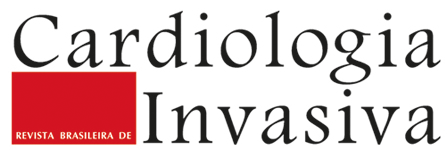BACKGROUND: The learning curve is one of the limitations of the transradial technique. The aim of this study was to evaluate the influence of the learning curve in the outcomes of procedures using the radial approach. METHODS: Prospective cohort study in patients undergoing cardiac catheterization allocated to Group A (interventions performed by operators with > 500 procedures by radial approach) and Group B (interventions performed by operators with < 500 procedures by radial approach). Radial pulse was evaluated by Doppler before, immediately after and seven days after the intervention. RESULTS: Fifty-eight patients were included in Group A and 62 in Group B. Most of them were female (57.5%), with mean age of 59 ± 10.3 years and 25% were diabetic. Coronary artery disease was diagnosed in equal proportion between groups (43.9% vs. 42.4%; P > 0.99), but valve disease was more prevalent in Group A (24.1% vs. 3.2%; P = 0.001). The crossover rate for the femoral technique was similar (1.7% vs. 1.6%; P > 0.99). The more experienced operators performed the procedures with shorter puncture, fluoroscopy and total procedure time (13.2 ± 5.2 minutes vs. 16.3 ± 4.8 minutes; P = 0.001). There were no major complications. No differences were observed for the presence of type I (12% vs. 3.2%), type II (1.7% vs. 1.7%) and type III (0 vs. 1.7%) hematoma. On Doppler evaluation, pulse flow and radial artery occlusion were similar between groups. CONCLUSIONS: The learning curve plays an important role in some of the outcomes related to procedures using the radial approach. Experienced operators perform procedures with shorter puncture, fluoroscopy and total procedure time.
Heart catheterization; Radial artery; Learning curve



